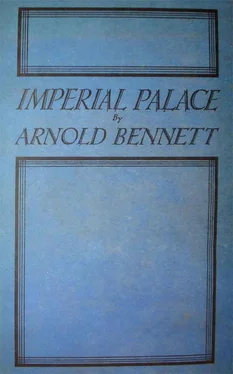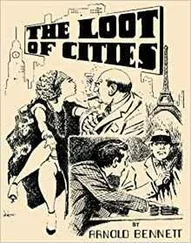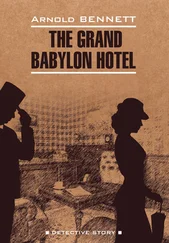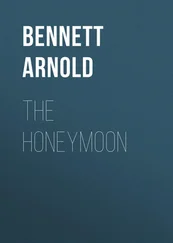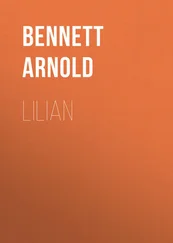Arnold Bennett - Imperial Palace
Здесь есть возможность читать онлайн «Arnold Bennett - Imperial Palace» — ознакомительный отрывок электронной книги совершенно бесплатно, а после прочтения отрывка купить полную версию. В некоторых случаях можно слушать аудио, скачать через торрент в формате fb2 и присутствует краткое содержание. Жанр: unrecognised, на английском языке. Описание произведения, (предисловие) а так же отзывы посетителей доступны на портале библиотеки ЛибКат.
- Название:Imperial Palace
- Автор:
- Жанр:
- Год:неизвестен
- ISBN:нет данных
- Рейтинг книги:4 / 5. Голосов: 1
-
Избранное:Добавить в избранное
- Отзывы:
-
Ваша оценка:
- 80
- 1
- 2
- 3
- 4
- 5
Imperial Palace: краткое содержание, описание и аннотация
Предлагаем к чтению аннотацию, описание, краткое содержание или предисловие (зависит от того, что написал сам автор книги «Imperial Palace»). Если вы не нашли необходимую информацию о книге — напишите в комментариях, мы постараемся отыскать её.
Imperial Palace — читать онлайн ознакомительный отрывок
Ниже представлен текст книги, разбитый по страницам. Система сохранения места последней прочитанной страницы, позволяет с удобством читать онлайн бесплатно книгу «Imperial Palace», без необходимости каждый раз заново искать на чём Вы остановились. Поставьте закладку, и сможете в любой момент перейти на страницу, на которой закончили чтение.
Интервал:
Закладка:
“I was just waiting for you, sir.”
“Want anything?”
“No, sir. I thought you might.”
An even increased devotion in his tone. His features were all joyous exhilaration.
“No. Nothing,” said Evelyn. “I’m going to have my tea upstairs. I’ll be down at five again.”
“Yes, sir.” Dacker’s smooth face said: “You are entitled to your retreat on this magnificent occasion. In your absence I shall watch over your interests.”
Evelyn went up in the lift to his home, and telephoned: “Get hold of Oldham, will you, please, and ask him to bring me my tea here. The Darjeeling, tell him. Thanks.”
He dropped into the easiest chair that the works department of the Palace could devise and make. A masterpiece of comfort. He picked up the current number of The Economist, his favourite weekly, and began to read it. A pretence! He did not read it. He was too happy to read, or even to think. He yielded his mind utterly to the sensation of happiness, saying to himself that he had never been so happy, never at any previous moment of all his life. The vista of his life in the future stretched beautifully before him. This kind of happiness had no complications. Nobody had the right to violate his retreat, man or woman. His monarchy was as absolute as that of a sultan—sultan without a purdah. . . .
Oldham softly entered with the tea-tray, which he set on a table by Evelyn’s side.
“I’ve brought you some hot ryvita in case you should fancy it, sir.”
“Thanks, I shall.”
“Thank you, sir.”
Oldham glanced about the ordered room to see that its orderliness was perfect. It was perfect. Then he glanced at his master. Happiness was on Oldham’s face too. Proud happiness, not for himself, but for Evelyn. Oldham knew. They all knew. Probably Oldham did not understand just what had occurred. But he knew that something supremely good for Evelyn had occurred. And his devotion was exalted. Evelyn thought:
“What have I done to win all this loyalty? I don’t deserve it.”
Chapter XXIII – SUSAN
I
The reason why Evelyn altered his rendezvous with Sir Henry Savott, Bart., from a mere encounter in the Directorial private office to a super-intimate dinner in his own living-rooms upstairs was simple. He had chanced, on the morning after the meetings of shareholders, to sit side by side with Savott in the barber’s shop of the Imperial Palace. Here, white-robed, in the most modern operating-theatre in London, ensconced in armchairs (from Chicago) which by a turn of a handle could be transformed into sofas or beds or stretchers fixed at any desired angle from the perpendicular to the horizontal, cropped, lathered, shaved, laved, anointed, trimmed, rubbed, combed and brushed by forty instruments and decoctions and oily perfumed compounds actuated or administered by electricity or caressing human hands, the two men had simultaneously submitted themselves to similar experiences.
They had begun together; they talked amiably from chair to chair; they heard a fellow-patient enquiring from an operator how in an electric scalp-massage the current passed from the throbbing machine into the skull; they exchanged confidential smiles at such naïveté; they heard the candour of unwitting customers concerning the characteristics of the Imperial Palace and the peculiarities of other visitors; and they exchanged more smiles; they overheard bits of extraordinary feminine conversations through partitions which imperfectly separated the male department from the female, and out of discretion forbore to glance at one another; they discovered that neither of them had ever in his life accepted the services of a manicure, and further that in nearly every detail they had the same tonsorial tastes; they chatted freely about neckties, collars, handkerchiefs and evening waistcoats. And, finishing simultaneously, they had stood up together, recreated, shining, and scented, and beheld themselves in mirrors and seen that they were marvellously fine. The sole difference between them was that whereas Sir Henry paid cash Evelyn only scribbled his initials on a check.
They left the luxurious marble apartment, cronies. There is nothing like a barber’s shop for producing rapid intimacy. Yet they had not bared their souls. In the entrance-hall Sir Henry had praised the operators and the installation. And in return Evelyn had said: “I say, supposing we alter our date? Come and dine with me to-night in my secret castle upstairs, if you’re free. We shall be more at home there.” And Sir Henry had said: “I’m not free. But I’ll get free. Eight-thirty? Would that suit you?”
And Maître Planquet had received special orders; the guardian of the wine-cellars too. And Miss Cass, learning the new arrangement, had of her own accord intimated that it would be a pleasure to instruct the florist about just a few choice flowers.
Thus the two met again in Evelyn’s sitting-room at precisely eight-thirty. No uneasy waiting about for women. They were too intimate to feel the need for shaking hands.
“Very nice of you to have me escorted up here,” said Sir Henry, who had found a white-gloved page-boy waiting outside the door of his suite.
“Well,” said Evelyn. “It’s a little withdrawn, my castle. Have a glass of sherry?”
“If I might have one of your ‘soft’ cocktails,” Sir Henry suggested.
“Two,” Evelyn murmured to Oldham, who was in attendance.
None but Oldham himself ever served at a meal in that room. A waiter assisted, but he was forbidden by law from appearing in front of the screen which hid the door.
“I see I’m behind the times,” said Evelyn, observing that Sir Henry wore a flower in his smoking-jacket, and he took a flower from a vase and inserted its stalk into his button-hole. “That’s better.”
Sir Henry laughed deprecatingly. Evelyn poked the fire, whose function was exclusively to cheer, not to supplement the radiators. As they stood before the fire, sipping orange-juice, smoking cigarettes, and talking of nothing in particular, Evelyn thought:
“After all, why shouldn’t I have him up here? Shows him who I am, and that I’m not suspicious of him, don’t want to hold him off, as I held off his strange daughter—so she said! Fact is I can handle him better up here than down in my office. He’s thinking already I’m going to fall for him. I don’t like his teeth, but he’s a lot more agreeable to-day than he was yesterday. He’s damned civil. Is it all put on for my benefit? No. Couldn’t be. There’s something about him that rather appeals to me. His tone. His eye. A shade too small, his eye, but——He may be quite all right. And I don’t care a curse what his reputation is. Don’t I always say you ought to take people as you find them? He may be a thoroughly decent fellow. Well, then! After all, it isn’t a sin to want to buy the Imperial Palace. Anybody’s entitled to try. And anybody’s entitled to lay hold of all the shares he can before he starts to bargain. Childish to bear him a grudge. And if he imagines he can get the better of me—well, we shall see.”
Oldham took the emptied glasses, and Evelyn and his guest sat down to the small round table.
“I really must congratulate you on your castle,” said Sir Henry, glancing round.
“Well,” said Evelyn, “one does what one can to be comfortable. No reason, is there, why I should make any visitor more comfortable than I make myself?”
“You’re right.”
It was a man’s menu. No caviare. No oysters. No hors d’œuvre. Turtle soup. Sole Palace. Pré-salé with two vegetables. No sweet. A savoury. Oldham offered a 1921 hock. Sir Henry accepted, but Evelyn noticed that he drank only a mouthful. The same thing happened to the champagne.
“They understand food and drink in your castle,” said Sir Henry.
Читать дальшеИнтервал:
Закладка:
Похожие книги на «Imperial Palace»
Представляем Вашему вниманию похожие книги на «Imperial Palace» списком для выбора. Мы отобрали схожую по названию и смыслу литературу в надежде предоставить читателям больше вариантов отыскать новые, интересные, ещё непрочитанные произведения.
Обсуждение, отзывы о книге «Imperial Palace» и просто собственные мнения читателей. Оставьте ваши комментарии, напишите, что Вы думаете о произведении, его смысле или главных героях. Укажите что конкретно понравилось, а что нет, и почему Вы так считаете.
